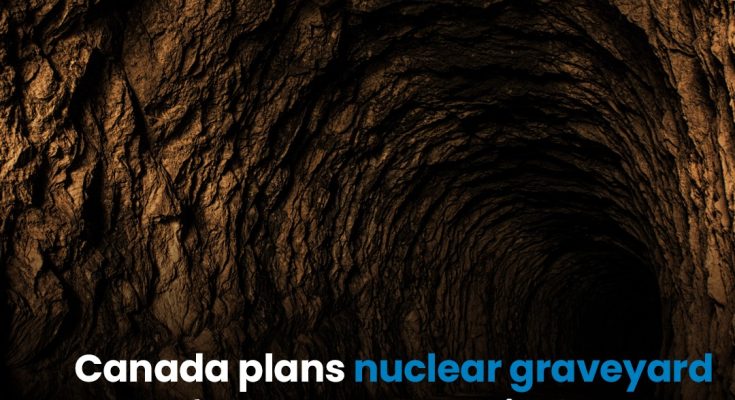Ottawa/CMEDIA: Choice of a nearby region as the site of an underground repository to hold Canada’s nuclear waste has been challenged in court by a First Nation in northern Ontario.
Eagle Lake First Nation has filed an application in Federal Court seeking a judicial review of the Nuclear Waste Management Organization (NWMO)’s decision to build the deep geological repository in the Township of Ignace and Wabigoon Lake Ojibway Nation area.
The decision was announced in November following Ignace’s town council and Wabigoon Lake Ojibway Nation’ agreeing to move forward, but Eagle Lake First Nation (ELFN) says it was “unjustifiably” rejected as a host community and denied its own right to consent to the project.
Court documents filed last Friday allegedly said NWMO’s rejecting ELFN as a host community not for any fair, justifiable or defensible reasons but because members of the First Nation had raised concerns about the nuclear waste site,
Jonathan Wilkinson, the federal minister of natural resources among the respondents, accused the NWMO of acting in “bad faith” and seeks to have its decisions quashed.
Funded by the corporations, a non-profit body NWMO that generates nuclear power and waste, said it is reviewing the legal challenge.
Selection of the nuclear waste site was done after “extensive” study and community engagement to establish safety of the site and that the host communities understand the project, a spokesperson noted.
“We have always been open to engaging with any First Nation interested in this project and welcome the opportunity to continue to build on past discussions with Eagle Lake First Nation,” Carolyn Fell wrote in a statement.
The $26-billion project to bury millions of used nuclear fuel bundles underground included a lengthy regulatory and construction process with operations not set to begin until the 2040s.
Before the Ignace-Wabigoon Lake Ojibway Nation area was ultimately chosen, the site selection process began in 2010, with 22 potential locations, and was narrowed down to two finalists in Ontario.
ELFN said in its court application that both ELFN and Wabigoon Lake Ojibway Nation were one nation with their territories still overlapping until at least 1932.
ELFN’s argument was that the chosen nuclear waste site “falls squarely in ELFN Territory – an area that ELFN and its members have been occupying since time immemorial.” .
In Spite of ELFN’s meeting with the NWMO at least 10 times between October 2017 and October 2024, NWMO refused its request to be designated a host community for the site with the argument that the risks of burying nuclear waste approximately 80 kilometres from the reserve can potentially impact ELFN’s rights including fear of driving land users away and dislocating them from their harvesting areas.
Grassy Narrows First Nation in northwestern Ontario also expressed concerns about the underground repository when it was announced, saying the transport and disposal of nuclear waste could cause “irreparable destruction to our lands, rivers and our way of life.”
At the time, Chief Clayton Wetelainen of Wabigoon Lake Ojibway Nation (WLON) said his community’s role in hosting the nuclear waste site was one of the most important responsibilities of our time.
Wetelainen and the council added that the project could only continue if it could be proven to be built safely, with respect to the environment and in a way that protects Anishinaabe values.
The community “does not have a statement to make at this time” about Eagle Lake First Nation’s legal challenge, a spokesperson for WLON, said Tuesday.





